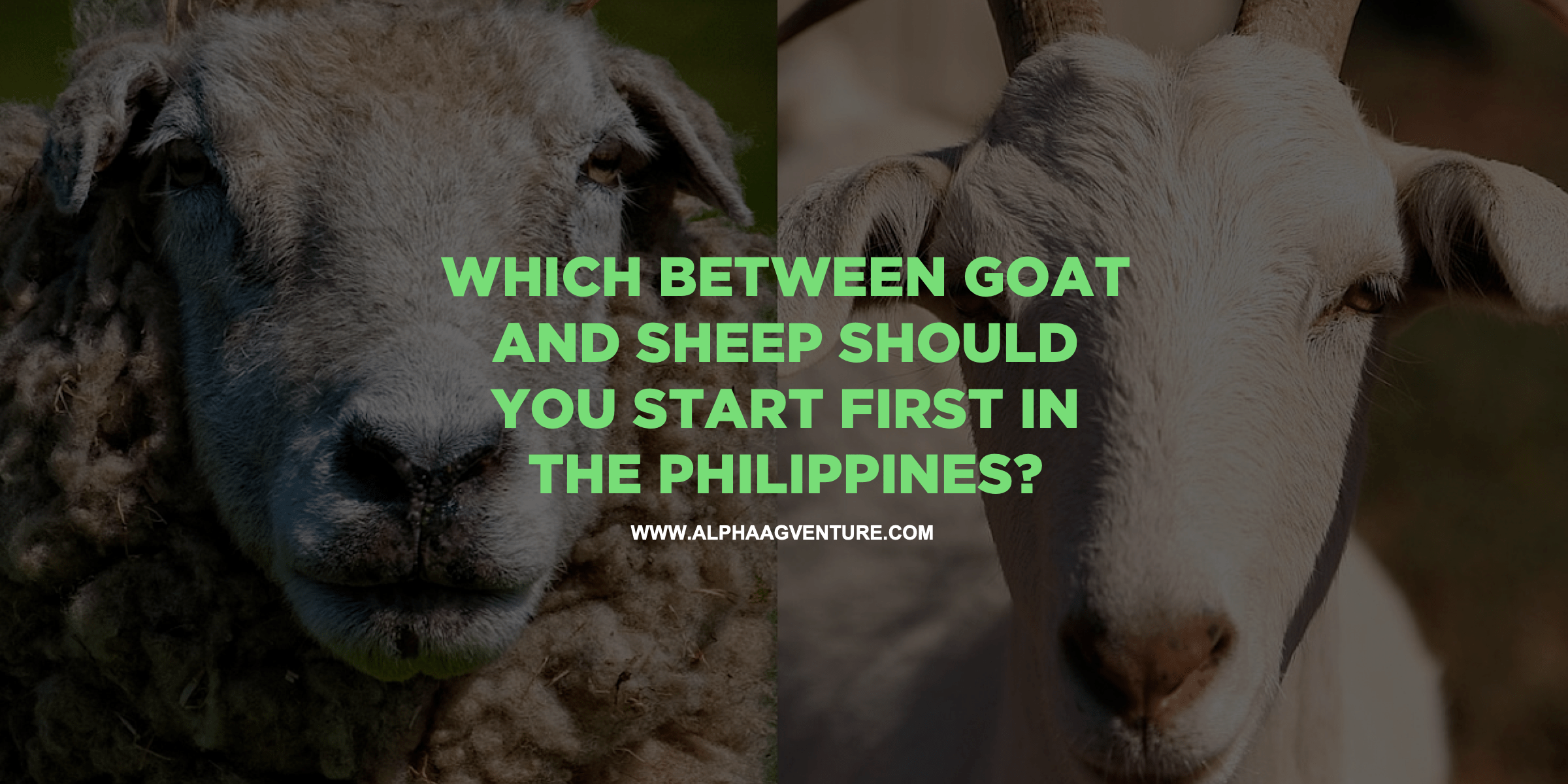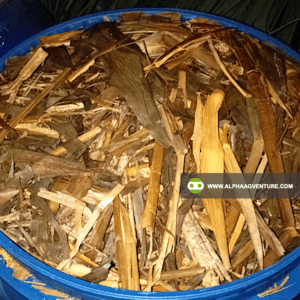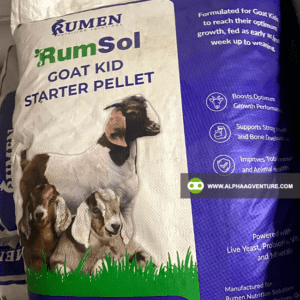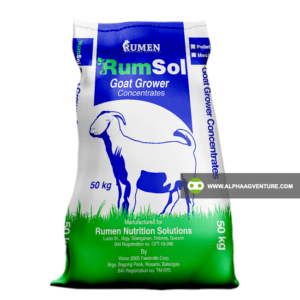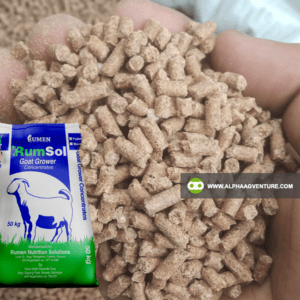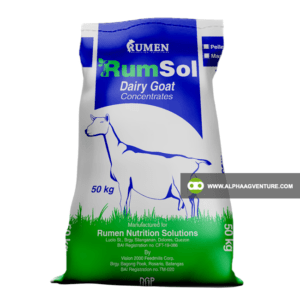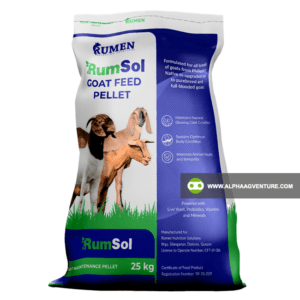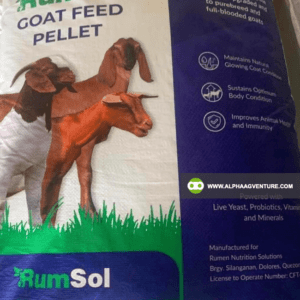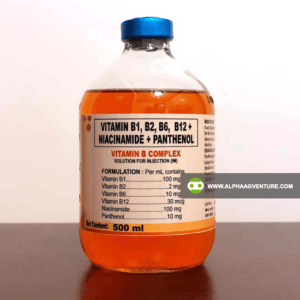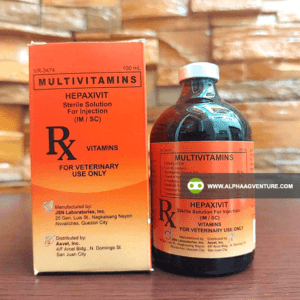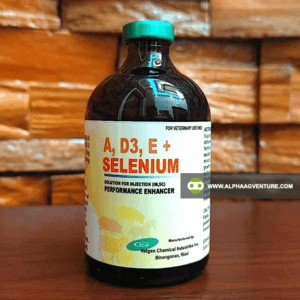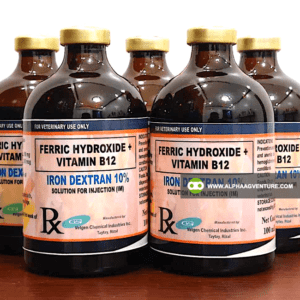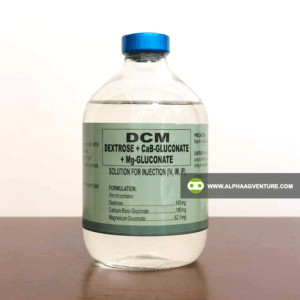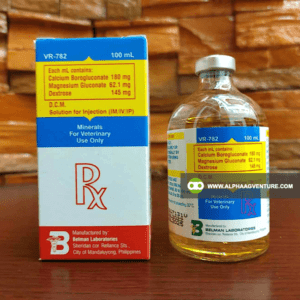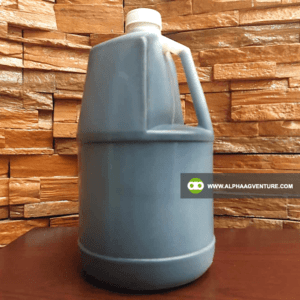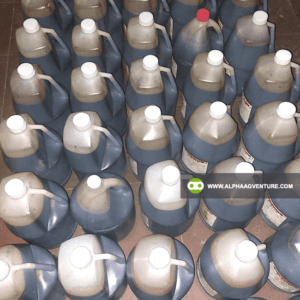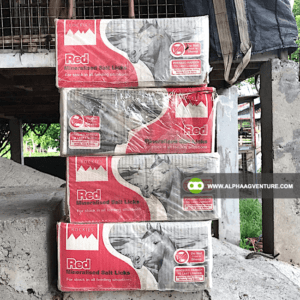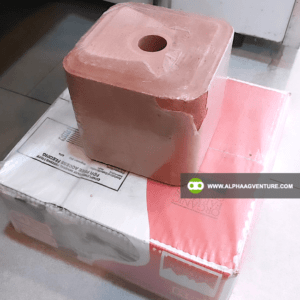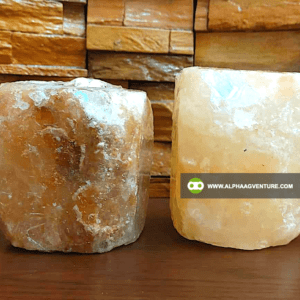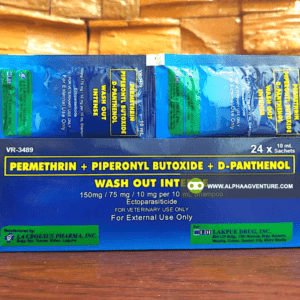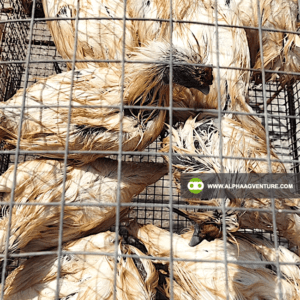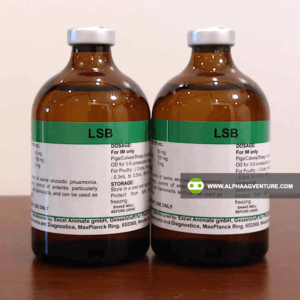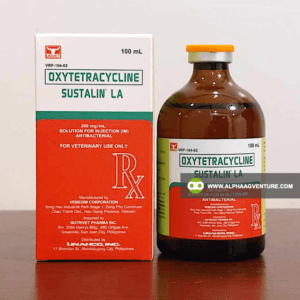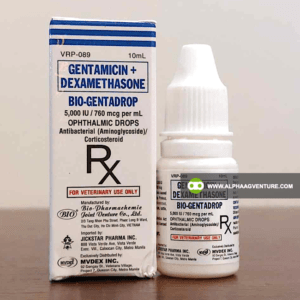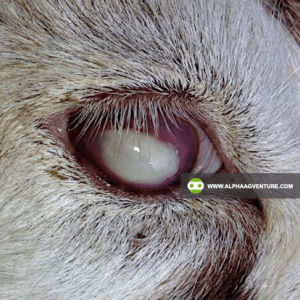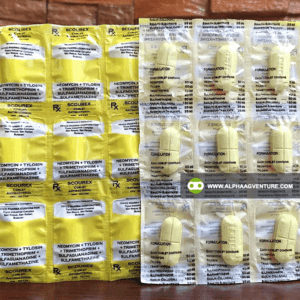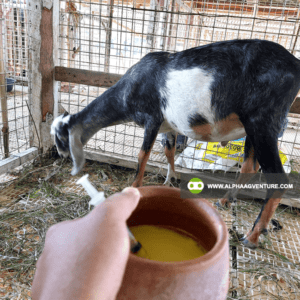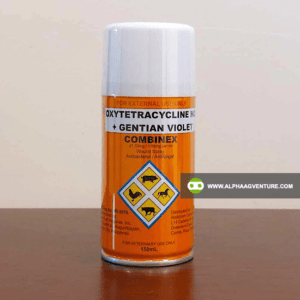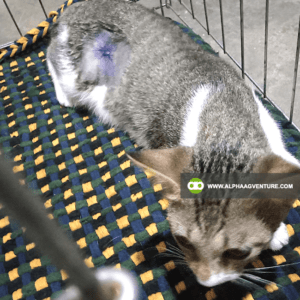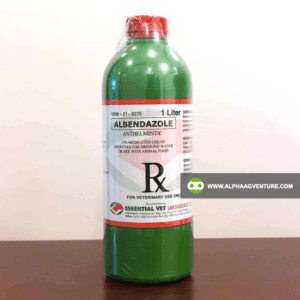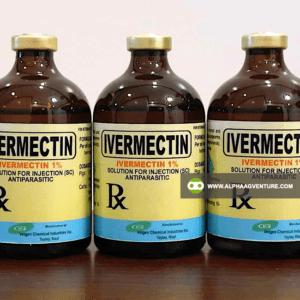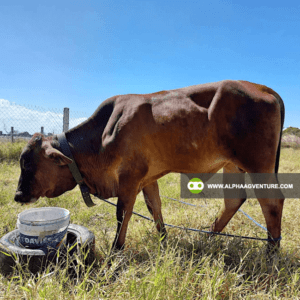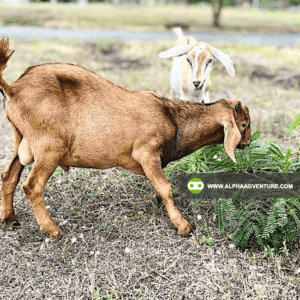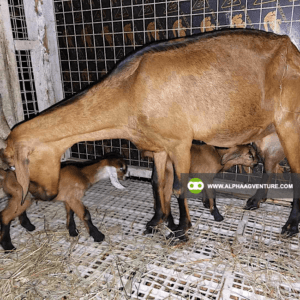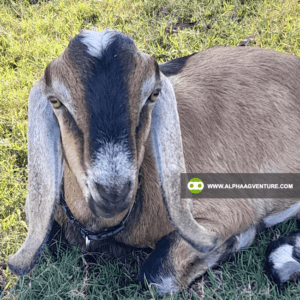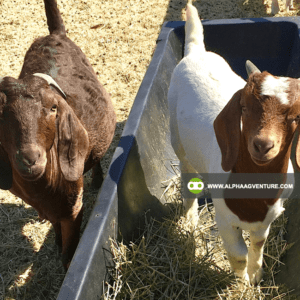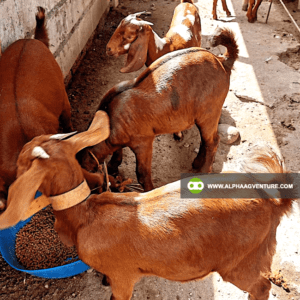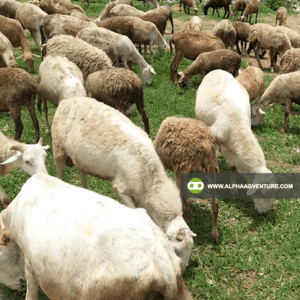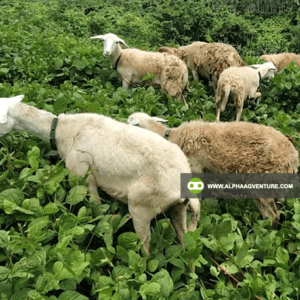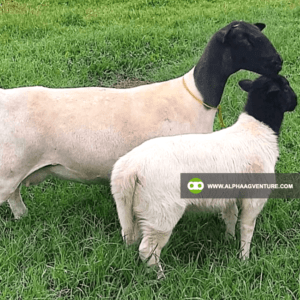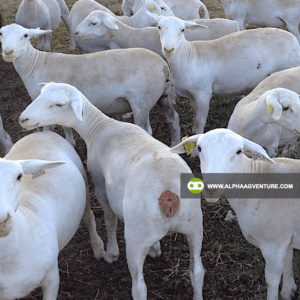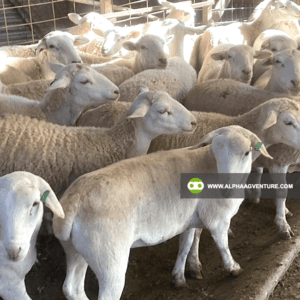When I first stood at the crossroads of choosing between goats or sheep, I quickly realized it wasn’t as simple as asking, “Which one is easier?” The real question was, “Which one fits my farm, my resources, and my long-term goals in the Philippines?” That realization changed everything for me. In this guide, I want to walk you through the same decision-making journey—not from an academic pedestal, but from the trenches where actual farmers like you and me live and work every day.
In the Philippines, choosing between goats and sheep isn’t just a matter of preference. It affects everything—from how you build your housing systems, to the type of forage you must grow or buy, to your marketing strategy, and even to your daily management routines. It’s like marriage: both choices can work out beautifully, but the daily realities will be very different. That’s why I’m not going to sugarcoat anything. You deserve to see the unvarnished realities.
More importantly, I’m writing this guide for you, the experienced livestock farmer or veterinarian who has probably seen your fair share of oversimplified articles. I’ll bring in solid local studies and real-world examples where it matters, and I’ll discuss the pros and cons of each choice based on Philippine conditions, not some generic advice made for Western farms.
My goal is simple: after reading this guide, you should be able to say, “I know exactly which one suits me better—and I know how to start right.” No regrets, no false starts, just a confident step forward toward a more profitable and sustainable livestock enterprise.
So let’s get serious—and let’s get practical. Which one should you raise: goats or sheep? Let’s dig in.
Climate and Environmental Suitability
When we talk about goats and sheep in the Philippines, the very first technical factor I urge people to look at is climate adaptability. Our tropical conditions are nothing like the temperate environments where many textbooks and foreign YouTube channels get their advice. If you miss this point, you’ll waste years fighting nature instead of working with it.
Goats, particularly hybrids, Anglo-Nubians, and Boers, are generally much more heat-tolerant than sheep. Their physiology is simply built for it. Goats have narrower nasal passages, better heat dissipation through their skin, and a stronger drive to seek shade and browse at higher elevations when available (Devendra, 2012).
Sheep, especially Blackhead Dorpers and White Dorpers, were developed in semi-arid to arid climates like South Africa. Although Dorpers have good heat tolerance compared to woolly breeds, they are still somewhat more vulnerable to high humidity and heavy tropical rains. Wet conditions are particularly risky for them because of foot rot, parasite overload, and respiratory issues (Abesamis et al., 2017).
You might be thinking, “But Dorpers are hardy, right?” Yes, they are — in dry climates. In our setting, especially during the typhoon season from June to October, even Dorpers will struggle unless you have excellent drainage, roofed shelters, and proactive parasite control.
Here’s a real-world example: When we trialed hybrid goats and White Dorper sheep side by side in a farm setting in Tarlac during the rainy season, the goats maintained body condition scores of 3.0–3.5 with minimal intervention, while the sheep often needed hoof trimming and extra antibiotic support to combat skin and foot infections.
Now, here’s a hard truth most new raisers ignore: You cannot fully modify your climate for your animals. Yes, you can build shelters and manage drainage, but you’re still fighting 80–100% relative humidity for months at a time. So why start with an uphill battle if you can choose an animal naturally more suited to your baseline conditions?
Microclimate matters, too.
If your land is elevated (say, above 500 meters like in parts of Bukidnon or Benguet), your environmental pressure on sheep lessens. Cooler, breezier environments allow Dorpers to thrive better than if you were at lowland humid areas like Pampanga or Laguna.
But if you’re farming in flood-prone lowlands or areas with poor drainage, starting with goats is the safer and more cost-effective option. Believe me, waterproof boots and vet bills pile up faster than you think.
Some people also ask, “Can’t I just adjust by giving sheep better houses?”
Sure, you can—and you should. But infrastructure can only protect so much. At the cellular level, goats naturally regulate heat stress better than sheep (Escarcha et al., 2015). No barn can completely erase genetic limitations.
In summary:
- If you’re in lowland, humid, flood-prone areas, I strongly recommend you start with goats.
- If you’re in highland, cool, breezy areas, both goats and sheep are options, but you must still be ready for more intensive health care with sheep.
- Always remember: It’s cheaper to adapt your choice of animal than to redesign Mother Nature.
And if you’re still unsure how to evaluate your farm’s climate and drainage capacity, don’t hesitate to consult with me at Alpha Agventure Farms. I can help you assess your site scientifically before you even buy your first animal. That one decision alone could save you hundreds of thousands of pesos.
Space and Housing Requirements
Whenever I help farmers choose between goats and sheep, the first physical reality I bring up is: housing is not just a shelter — it’s your first health management tool. A bad house will cost you more in medicine, labor, and losses than most people realize.
Let’s start with space requirements.
Goats are agile, love to climb, and are natural escape artists. They hate getting wet and will seek elevated areas instinctively. As a rule of thumb, goats need about 1.5 to 2 square meters per head in covered housing (Gatungay et al., 2016). If you have larger breeds like Boers or big hybrid bucks, you must add an extra half meter per animal to avoid fighting and injuries.
Sheep, particularly Dorpers, are more ground-oriented. They don’t climb but they need space to avoid heat stress and respiratory disease outbreaks, especially in humid months. For sheep, 2 to 2.5 square meters per head is ideal (Olivares et al., 2014).
Notice the difference?
If you plan to scale up, housing for sheep typically requires about 30% more floor space than for goats. This adds up quickly in construction costs, especially if you’re building with galvanized roofing and treated lumber.
Now, when it comes to housing design, goats need elevated floors (at least 3 feet above ground) with slatted flooring so urine and manure drop through easily. Sheep can tolerate ground-level housing better, but you must obsess over drainage. “Kahit gaano kaganda ang bubong, kung hindi mabilis sumipsip ng tubig ang lupa, bulok ang kalalabasan.” (No matter how nice the roof is, if water doesn’t drain fast, the whole system rots.)
Ventilation is another big deal.
Both goats and sheep are prone to respiratory problems if airflow is poor. In our experience, the sweet spot is at least 15–20 air changes per hour inside the shelter — achievable through proper building orientation (aligned east-west) and 1.5-meter open eaves.
If you’re starting out and thinking, “Paano ko ba idedesign ‘yung goat house ko?” (How do I even design my goat house?) — here’s the smart shortcut: Outsource it to us at Alpha Agventure Farms.
We can design and build a customized goat house based on your herd size, land contour, and budget. No need for you to struggle over slope, drainage planning, flooring angles, or structural loading. You focus on raising healthy animals; we’ll take care of the engineering headaches.
Real-world mistake to avoid: Many beginners just build an oversized chicken house and dump goats or sheep inside. It might look fine for the first few months, but wait until the rainy season hits — you’ll regret not doing proper housing design. Respiratory outbreaks and lameness can cripple your investment overnight.
In summary:
- Goats require elevated, slatted, dry shelters.
- Sheep require larger ground space and drainage-focused housing.
- Wrong housing equals guaranteed future medical costs.
If you want to skip the trial-and-error phase and protect your investment from day one, reach out to Alpha Agventure Farms for professional goat and sheep housing solutions.
Feed and Nutrition: Reality in the Philippines
When we talk about feed and nutrition, we’re not just talking about what goes into their mouths. We’re discussing the foundation of health, productivity, and long-term success in farming. Goats and sheep have very different dietary needs, and if you fail to meet these, you’ll be chasing medical issues instead of growth and profits.
First, let’s talk about forage. In the Philippines, grass is a staple part of both goat and sheep diets. But the reality is, our native grasses, especially in lowland areas, often lack the nutritional quality goats and sheep need to gain weight or produce high-quality milk (Lozano et al., 2015). Grass can be nutrient-poor, especially during the dry season, so you have to rely on supplementary feeds.
Goats tend to be more browsers than grazers. They like leaves, shrubs, and twigs more than pure grass. If you’re raising goats like Anglo-Nubian or Boer and you don’t have access to quality browse or forage, you’ll likely be feeding them commercial concentrate — a mix of corn, soybean meal, and other grains.
For sheep, however, they are primarily grazers. Their digestive system is designed to handle high-fiber grasses. But don’t be fooled into thinking just grass will be enough, especially for Dorpers, which are more meat-oriented than dairy sheep. These animals require more energy-dense rations to support muscle growth (Gatungay et al., 2016). The White Dorper, in particular, thrives when supplemented with quality hay and grains to promote muscle mass for meat production.
Now, let’s talk about corn silage. Corn silage is an excellent supplement that can boost the nutritional intake of both goats and sheep. For goats, it helps with energy needs, especially in the hot months when grazing is scarce. For sheep, it supports growth and lactation — a must for Dorpers.
“E paano kung walang sapat na forage at feed sa paligid ko?” (What if I don’t have enough forage and feed around me?)
This is where Alpha Agventure Farms steps in. We supply corn silage year-round — just issue post-dated checks, and we guarantee you’ll have a steady supply of top-quality silage. Whether you’re managing a small herd or scaling up, you can rely on us for your ruminant feed concentrates, and we’ll even deliver to your farm.
This is a huge advantage for Philippine farmers who don’t have the luxury of lush, year-round pasture or native forage options. Without corn silage, you’ll be left constantly competing with Mother Nature to meet your animals’ nutritional needs.
Objection to address: Some people will argue, “Hindi ba mahal ang corn silage?” (Isn’t corn silage expensive?)
Yes, silage can seem pricey up front, but when you look at the total cost savings — no feed shortages, no emergency vet bills from malnourished animals, better growth rates — the investment pays for itself quickly. Not to mention, silage reduces the dependency on unreliable forage and allows your animals to stay healthy year-round.
The most common mistake farmers make is assuming that low-cost or low-quality feeds are sufficient. When you cheap out on feed, you get poor results in return. I’ve seen this firsthand in farms that didn’t use quality concentrates or silage; the animals either didn’t grow properly or became sick too often.
When it comes to minerals and vitamins, goats and sheep have slightly different needs. Goats require more copper in their diet (which can be toxic to sheep if overdosed), while sheep need a consistent supply of selenium and iodine. That’s where Alpha Agventure Farms comes in again — we offer Vitamin ADE, Vitamin B-Complex, Iron Dextran, and DCM — everything you need for optimal livestock health.
In summary:
- Goats need a balanced combination of browse, corn silage, and concentrates.
- Sheep need grass, hay, and supplementary grains for muscle growth.
- If forage is scarce or of poor quality, outsource corn silage and concentrates from Alpha Agventure Farms.
- Healthy nutrition = lower vet bills and better profits.
As you can see, proper nutrition is key to success in both goat and sheep farming. Whether you’re managing a small backyard farm or a larger commercial operation, investing in quality feed and reliable silage ensures that your livestock stay healthy, productive, and profitable in the long run.
Health and Disease Management
One of the hardest aspects of farming is managing health and preventing diseases. Goats and sheep, like any livestock, are vulnerable to a range of health issues, and knowing how to prevent them before they escalate can save you time, money, and heartache. I can tell you firsthand that prevention is much cheaper than treatment.
Let’s start with common diseases and health issues you need to be aware of:
Goats are particularly susceptible to parasites like internal worms (e.g., Haemonchus contortus) and external pests such as lice and ticks. A major threat to goats, especially in tropical climates like the Philippines, is Pneumonia. Poor ventilation and high humidity can lead to respiratory infections, which can spread quickly in confined spaces.
Sheep, particularly Dorpers, face similar challenges but are also vulnerable to foot rot and scrapie — a disease that affects the nervous system. Foot rot can spread rapidly in wet and muddy conditions, so ensuring good drainage is key to managing it. Scrapie, while rare, is a fatal disease and must be taken seriously if detected early. Sheep are also more prone to bloat than goats, especially when feeding on lush, fast-growing pasture.
Now, onto the good news — most of these diseases can be prevented with proper management and vaccinations. You’ll need to vaccinate your goats and sheep regularly. For goats and sheep, Toxipra Plus and Hemosep-WC vaccines are important.
Toxipra Plus is a clostridial vaccine that protects ruminants from several potentially deadly diseases caused by Clostridium bacteria, including enterotoxemia, blackleg, tetanus, and necrotic hepatitis. It works by stimulating the animal’s immune system to produce antibodies against these pathogens, reducing the risk of severe illness.
Hemosep-WC, on the other hand, is designed to protect against hemorrhagic septicemia, a highly contagious and fatal disease caused by Pasteurella multocida. Both vaccines are vital for maintaining herd health, but they target different pathogens, making them complementary in disease prevention.
You also can’t ignore the importance of minerals. Himalayan salt licks and mineral blocks are essential for both goats and sheep. Goats, in particular, need copper and zinc for growth, coat health, and immunity, but you have to be cautious not to give them too much copper if you also have sheep, since sheep are sensitive to it.
“Paano kung hindi ko kayang gawin lahat ng preventive measures na ito?” (What if I can’t do all these preventive measures myself?)
This is where Alpha Agventure Farms really shines. We can supply all necessary medications, including Vitamin B-Complex, Vitamin ADE, Iron Dextran, DCM, and dewormers for your goats and sheep. We also offer veterinary services through our Ruminant Healthcare Service, which means we’ll handle the injections and deworming for you.
This service is a game-changer, especially for farmers who are just starting out or those who don’t have the time to handle all the medical needs themselves. By outsourcing this task to Alpha Agventure Farms, you ensure your animals receive timely and professional care, reducing the risk of disease outbreaks and improving overall farm productivity.
One common objection is, “Mahal ba ang deworming at injections?” (Are deworming and injections expensive?)
While there is an initial cost, the long-term savings far outweigh the investment. Regular vaccinations and deworming programs prevent costly emergencies, like the spread of disease or livestock loss due to severe infestations. It’s always cheaper to prevent than to cure.
In summary:
- Goats and sheep are vulnerable to a variety of parasites, respiratory diseases, and foot rot.
- Vaccinations, minerals, and regular deworming are essential for disease prevention.
- If you don’t have the time or expertise to manage these, Alpha Agventure Farms offers veterinary services to keep your herd healthy.
Taking care of your animals’ health will save you money in the long run and maximize your farm’s profitability. The right healthcare management can make the difference between a thriving herd and a costly disaster.
Labor and Time Commitment: Goats vs. Sheep
When deciding between goats and sheep, labor and time are often underestimated. Some people assume, “Pareho lang naman silang hayop, siguradong pareho rin ang trabaho.” (They’re both animals, so surely the work is the same.)
I’m here to tell you — it’s not.
Let’s break it down:
Goats are naturally curious, restless, and love to explore. This means that daily checks on your goat pens must be thorough. Any small hole, gap, or loose latch will be discovered and exploited faster than you can say “baka makawala!” (they might escape!). Goats also require twice-a-day feeding (even if you outsource silage and concentrates) and regular browsing opportunities if you want to optimize health.
Plus, when goats are in heat or stressed, they can become extremely noisy, which adds to the need for constant monitoring.
Sheep, on the other hand, are generally more docile. They move in groups naturally — flocking instinct — and are easier to herd and manage. A good dog can make sheep management even lighter. However, sheep require more frequent hoof trimming especially in the rainy months, and if you’re managing Dorpers, you’ll need to pay attention to parasite control in wet conditions.
But which is more labor-intensive?
Goats require more daily attention and better pen maintenance.
Sheep require periodic intensive work (e.g., trimming, parasite checks), but their daily routine is calmer.
If you’re someone who prefers “konti-konti pero tuloy-tuloy” (small but continuous tasks) every day, goats might fit you better. If you prefer “relax muna, saka na bigayan ng effort minsanan” (relaxed at first, heavy effort later) — then sheep might be your match.
Now, what if you don’t want to handle all the day-to-day tasks yourself?
That’s where Alpha Agventure Farms’ consultancy services come in. We can help design your daily schedule, streamline your labor requirements, and train your workers if you have staff. Our farm systems are designed to minimize unnecessary labor without compromising animal welfare.
Remember, labor efficiency is both about who works harder and smarter.
In summary:
- Goats demand more daily vigilance and pen maintenance.
- Sheep require less daily effort but intensive batch work (like hoof trimming).
- You can cut labor demands significantly by consulting with Alpha Agventure Farms.
Managing your labor wisely could spell the difference between enjoying your farm and feeling like a prisoner to it.
Behavior and Temperament: Which Suits You Better?
I’ve seen it time and time again — the behavior of your animals will either make your farming experience a joy or a daily stress test. Kaya mahalagang pag-usapan natin ito. (That’s why we must talk about this.)
Goats are independent, inquisitive, and often stubborn. Think of goats as the “cats” of the livestock world. They love climbing, exploring, nibbling on anything, and figuring out how to escape. If you’re easily stressed by unpredictable behavior, goats might test your patience. A hybrid goat, an Anglo-Nubian, or a Boer will all share this goatish cleverness, although Boers tend to be a bit calmer than the Anglo-Nubians.
The answer is yes, sheep are generally more difficult to catch than goats. They are naturally more skittish and will often run away when startled. This makes them harder to corral or catch quickly.
Goats, on the other hand, are typically more curious and agile, which might make them seem more mischievous and harder to catch. However, they tend to be less easily spooked by changes in their environment, making them more manageable once you have them in a confined space.
Sheep, meanwhile, are gentler, timid, and follow-the-leader types. Once one sheep moves, the others instinctively follow. This behavior makes flock management simple, especially during herding and loading activities. Blackhead Dorper and White Dorper breeds, for example, are naturally docile but extremely alert to sudden changes in their environment.
However, sheep spook easily. Big noises, quick movements, and even unfamiliar people can cause a stampede if you’re not careful. If your fencing is weak, “baka mabangga nila ‘yan sa takot” (they might slam into it out of fear).
So which suits your personality better?
If you enjoy training animals, solving little puzzles, and active daily interaction, goats might be your spirit animal.
If you prefer calm, orderly management with less drama, sheep might suit your temperament better.
I know another objection lurking in your mind: “Puwede bang pagsabayin ang kambing at tupa sa iisang farm?” (Can goats and sheep be raised together in one farm?)
The short answer is yes, but it’s not always efficient. Goats prefer browse (leaves, twigs, shrubs), while sheep prefer graze (grasses). Managing two different feeding systems can be complicated unless you plan it meticulously — again, something that our Alpha Agventure Farms consultancy can help you blueprint.
In summary:
- Goats are clever, mischievous, and highly interactive.
- Sheep are calm, group-oriented, but easily startled.
- Match the animal’s temperament to your own to enjoy long-term success — and ask for help if you want expert guidance.
Choosing between goats and sheep isn’t just a business decision; it’s a lifestyle alignment.
Climate and Environmental Adaptability
One of the biggest advantages we have in the Philippines is our tropical climate — but it’s a double-edged sword. While our warm temperatures favor faster growth, our high humidity and unpredictable rain patterns also invite disease outbreaks and heat stress. Kaya mahalaga talaga na pumili ng hayop na kayang mag-adapt. (That’s why it’s critical to choose animals that can adapt.)
Let’s talk goats first.
- Hybrid goats, Anglo-Nubians, and Boers generally handle our heat well, but they have their differences.
- Hybrid goats bred locally are extremely hardy. Most are crosses with native goats or well-acclimated bloodlines.
- Anglo-Nubians, originally from hot climates like Africa and the Middle East, thrive in heat but sometimes struggle in extreme humidity if ventilation is poor.
Boer goats, though robust, were developed in dry South African regions. If you plan to raise Boers, you need excellent ventilation and shaded areas.
Humidity is often the silent killer in goat farms here. Even strong breeds can fall prey to pneumonia if your housing doesn’t have the right air circulation — something Alpha Agventure Farms specializes in designing.
What about sheep?
- Hybrid sheep bred locally are relatively tolerant but still susceptible to foot rot during prolonged wet seasons.
- Blackhead Dorpers and White Dorpers are among the most heat-tolerant sheep breeds worldwide. However, they need dry bedding and regular hoof maintenance, especially during our monsoon months.
One objection I often get is, “Kung sanay naman sila sa init, bakit pa kailangan ng ventilated housing?” (If they’re used to heat, why do they still need ventilated housing?)
Here’s the truth: tropical heat + tropical humidity is much deadlier than just dry heat. Animals struggle to sweat off excess body heat in humid environments, risking fatal heatstroke.
When it comes to environmental adaptability:
- Goats tend to adapt better to browsing environments (hilly, mixed vegetation areas).
- Sheep prefer flatter, grass-dominant pastures but need drier ground.
- Both require housing systems that account for Philippine humidity.
Alpha Agventure Farms doesn’t just provide you animals — we help you engineer your farm for maximum adaptability, with proven designs that beat tropical challenges.
In summary:
- Goats and sheep can both thrive under Philippine conditions — if properly managed.
- Humidity is a more serious threat than heat alone.
- Farm layout, housing, and drainage systems are key to long-term success.
Building for climate resilience isn’t a luxury — it’s survival.
Breeding Efficiency and Reproductive Management
Kung sa negosyo, cash flow ang buhay — sa livestock farming, reproduction ang buhay. (If in business, cash flow is life — in livestock farming, reproduction is life.) If your goats or sheep can’t breed efficiently, you’re setting yourself up for frustration and financial hemorrhage.
Goats first:
- Hybrid goats bred in the Philippines tend to be very fertile. Many Filipino farmers report that well-managed hybrid does can kid thrice in 2 years, producing twins or even triplets in good conditions.
- Anglo-Nubian goats are prolific breeders too. Expect around three kiddings in two years under optimal management.
- Boer goats are impressive for meat production but are less frequent breeders. Typically, you’ll get one kidding per year, although with excellent management (and some hormonal interventions), you might achieve a 3-kiddings-in-2-years cycle.
Now, sheep:
- Hybrid sheep, especially if bred with tropical bloodlines, can lamb about once a year.
- Blackhead Dorpers and White Dorpers are excellent in this department. Given enough nutrition and healthcare, they can lamb three times in two years, similar to a well-managed goat operation.
A big objection I know you’re thinking is: “Madali bang magpalahi ng kambing at tupa sa Pilipinas?” (Is it easy to breed goats and sheep in the Philippines?)
My answer: Breeding is easy. Managing reproduction efficiently is the real challenge.
Factors like:
- Heat stress during the summer
- Nutritional deficiencies during the dry or rainy season
- Silent heats that are hard to detect
- Breeding soundness of your bucks and rams
— all these affect your success rate.
Let’s not forget disease management either. Brucellosis, Chlamydia, and other reproductive diseases lurk in poorly managed herds. This is why it’s not enough to just own animals. You need a reproductive health plan — something that Alpha Agventure Farms can help you map out if you avail of our Goat and Sheep Consultancy Service.
What about artificial insemination (AI)?
AI for goats and sheep is growing in popularity in the Philippines but still requires technical skill. Cervical AI (CAI) is easier but less effective, while laparoscopic AI (LAI) offers better success rates but costs more.
Here’s another common objection: “Bakit hindi nalang puro AI para mabilis dumami?” (Why not just use AI so they multiply faster?)
Simple: Natural breeding is still more cost-effective for most small and medium-scale farms. Unless you have hundreds of breeders and access to skilled veterinarians, it’s smarter to build your herd through natural methods first.
In summary:
- Boers are slower breeders but offer superior meat quality.
- A breeding program must account for climate, nutrition, healthcare, and sometimes, professional intervention.
Breeding isn’t just about numbers — it’s about smart, sustainable herd building.
Market Demand and Profitability Potential
In livestock farming, no matter how good your production is, if the market isn’t there, walang kwenta lahat ng pagod mo. (All your hard work becomes useless.) That’s why I always tell anyone asking me: understand the market first, before even buying your first goat or sheep.
Let’s look at the market for goats:
- In the Philippines, goat meat or kambing is a staple in celebrations — birthdays, weddings, fiestas.
- Goat meat demand is consistently strong year-round, with spikes during December, Holy Week, and town fiestas.
- Native goat meat remains popular, but there’s increasing demand for larger, meatier carcasses from hybrids, Anglo-Nubians, and Boers.
- Goat milk, although a niche market, is growing in urban areas where lactose intolerance is common.
Now, for sheep:
- Sheep meat (lamb or mutton) is not as popular with ordinary Filipino households.
- It’s more often consumed in Muslim communities, upscale restaurants, and by health-conscious consumers.
- The lamb meat market is premium-priced but relatively smaller than goat meat.
- Wool has no significant market here because of the climate — a non-issue because Dorpers are hair sheep, not wool sheep.
A lot of first-timers ask me: “Sir, mas maganda bang magpalahi ng tupa dahil konti pa lang ang gumagawa?” (Sir, is it better to raise sheep because there’s less competition?)
Here’s my straight answer: low competition also means low demand. Until more Filipinos embrace eating lamb regularly, goat farming will generally offer more predictable and faster cash flow.
If you want mass market, goats are the way.
If you’re eyeing premium niche markets — like high-end hotels, Muslim communities, and health food suppliers — sheep could be very profitable.
Profitability figures: (Based on Alpha Agventure Farms’ actual consultancy data)
- Hybrid goats: Net profit margins of 30–40% are achievable with good management.
- Anglo-Nubians and Boers: Slightly lower margins (25–35%) because of higher feed and care costs, but bigger sales per head.
- Hybrid sheep: Profit margins of 20–30%, depending on whether you tap into niche markets successfully.
- Dorpers: 30–40% potential margins if sold to high-end buyers.
If you want to avoid the pitfall of “produce first, market later,” Alpha Agventure Farms can also assist you through our Goat and Sheep Farming Consultancy Service, where we help you design your production according to your target market.
In summary:
- Goats have a stronger, broader, and more consistent market in the Philippines.
- Sheep offer premium opportunities, but to a narrower, more specialized clientele.
- Profitability depends not just on production efficiency but on your marketing strategy.
Hindi lahat ng mabenta ay madaling ibenta. (Not everything in demand is easy to sell.)
Cultural Preferences and Social Acceptance
No matter how scientific your farm setup is, if your community doesn’t culturally accept your livestock, para kang nagtatanim sa buhangin. (You’re like planting seeds in sand.)
That’s why I always advise farmers to understand the deep cultural dynamics before choosing between goats and sheep.
Goats and Filipino Culture:
- Kambing is already a cultural icon, especially in rural Philippines.
- Every town fiesta almost demands a goat dish — kaldereta, kilawin, papaitan, sinampalukang kambing.
- Even among non-farmers, raising goats is seen as normal and respected.
Sheep and Filipino Culture:
- Tupa (sheep) are relatively unknown to many Filipinos outside Muslim Mindanao, urban halal markets, and specialty meat suppliers.
- Some people still confuse sheep with goats, or even expect sheep to have thick wool (which Dorpers don’t).
- Raising sheep might get you a few curious stares at first, but it’s becoming slowly more accepted among progressive, niche livestock farmers.
One major objection I often hear: “Hindi ba mahirap ibenta ang tupa kung hindi naman kilala dito?” (Isn’t it hard to sell sheep since it’s not well-known here?)
My answer: yes and no.
- Yes, if you’re targeting the wrong audience.
- No, if you position yourself strategically to Muslim communities, hotels, health-conscious consumers, and restaurants seeking premium meat.
If you’re unsure how to assess your community’s openness to either species, you can tap Alpha Agventure Farms’ Goat and Sheep Farming Consultancy Service. We can even help you survey your local market beforehand.
In summary:
- Goats are culturally mainstream and easily accepted nationwide.
- Sheep are niche but growing, particularly in specialized markets.
- Choose livestock aligned not just to profitability — but also to cultural fit in your area.
Ang magaling na magtanim, marunong pumili ng tamang lupa. (A good farmer knows how to choose the right soil.)
Labor Requirements and Management Complexity
When planning a goat or sheep farm, many people focus on the capital — but forget to ask: “Sino ang mag-aalaga?” (Who will handle the care?)
Livestock farming is a daily commitment, not a once-a-week hobby.
Goat Labor and Management:
- Goats are relatively easy to manage for most Filipino farmhands.
- Daily routines like feeding, watering, and health checks are straightforward.
- However, goats are naturally makulit (mischievous), meaning fences need to be regularly inspected and repaired.
- Breeding management (especially for Anglo-Nubian and Boer crosses) may require monitoring to avoid overbreeding and accidental inbreeding.
Sheep Labor and Management:
- Dorpers are naturally docile and less jumpy compared to goats.
- They are easier to herd and less likely to damage fencing.
- But, sheep are more sensitive to wet ground conditions, hoof care, and parasite management.
- Labor must be trained to perform regular hoof inspections — a task many goat handlers aren’t used to.
A common objection I hear: “Sir, hindi ba parehong madali lang sila alagaan basta may worker?” (Aren’t they both easy to manage as long as you have a worker?)
The reality is, yes and no again.
Yes, if you have trained laborers familiar with both species.
No, if your caretakers are inexperienced, because sheep-specific management skills (like foot rot prevention) require additional training.
If you want a shortcut to smoother operations, Alpha Agventure Farms offers hands-on training modules for your livestock workers, ensuring your farm staff knows how to properly manage both goats and sheep from day one.
In summary:
- Goats are easier for traditional Filipino livestock handlers.
- Sheep require slightly more specialized, but manageable care.
- Investing in labor training early on is cheaper than losing animals later.
Hindi sapat ang lakas ng katawan — kailangan din ang tamang kaalaman. (Physical strength isn’t enough — you also need the right knowledge.)
Breeding and Reproduction Differences
Breeding is where a farm either skyrockets or crashes silently.
“Mabilis ba silang dumami?” (Will they reproduce quickly?)
That’s the number one question anyone serious about profits should ask.
Goat Breeding Characteristics:
- Goats reach sexual maturity at 6–8 months, although breeding is best at 10 months for healthier offspring.
- Most goat breeds, especially hybrid goats and Anglo-Nubians, can breed year-round (polyestrous).
- Boer goats, being meat breeds, are slightly slower to reach maturity, but they produce heavier kids.
- Kidding rate: Expect 1.8 to 2.2 kids per doe per year with good management (Peñalba, 2002).
Sheep Breeding Characteristics:
- Dorpers (both Blackhead and White Dorper) reach sexual maturity slightly later — around 8–10 months.
- Dorpers also show year-round breeding ability under tropical conditions, an important advantage over traditional temperate sheep (Galang & Bondoc, 2007).
- Lambing rate: Dorpers average 1.5 to 2 lambs per ewe per year, depending on nutrition and care.
- However, lamb mortality can be higher in humid conditions without strict management against parasites.
Breeding Management Differences:
- Goats often require stricter buck management to avoid uncontrolled breeding, especially when running mixed-age groups.
- Sheep are more straightforward when managed in flock groups — less territorial, less aggressive during mating season.
- Both goats and sheep benefit from controlled breeding programs to improve genetics and predict kidding or lambing seasons for market timing.
A lot of beginners tell me: “Sir, basta may lalaki at babae, mag-aanak yan!” (As long as there’s a male and female, they’ll reproduce!)
While technically true, I always say: there’s a big difference between random breeding and strategic breeding.
Random breeding wastes time, money, and good genetics. Strategic breeding, guided by performance records, is how farms get better each generation.
If you don’t know how to design a breeding program yet, Alpha Agventure Farms offers breeding consultancy services — whether you want to maximize meat production, milk yield, or both.
In summary:
- Both goats and sheep can breed year-round under Philippine conditions.
- Goats mature faster, but sheep (Dorpers) are highly efficient breeders too.
- Controlled breeding, not random pairing, builds sustainable profits.
Ang mabuting magsasaka, hindi umaasa sa tsamba. (A good farmer does not rely on luck.)
Final Thoughts on Choosing Between Goats and Sheep for Your Farm
Choosing between goats and sheep is more than just about picking an animal for your farm; it’s about choosing a lifestyle and business model that fits your vision, resources, and local market. Both species have their strengths, from the goats’ inquisitive and clever nature to the sheep’s calm demeanor and efficient herd management. However, the key to long-term success lies in understanding their behavior, climate adaptability, reproductive efficiency, market potential, and cultural fit.
| ASPECT | GOATS | SHEEP |
| Temperament | Independent, curious, more energetic | Docile, herd-oriented, calm |
| Diet | Browse, prefer shrubs and leaves | Graze, prefer grasses and clover |
| Size | Smaller, more agile | Larger, more robust |
| Wool | Fine hair or hair breeds (e.g., Angora, Cashmere) | Wool breeds, sheared for wool |
| Milk Production | Higher fat content, often used for cheese | Lower fat content, mainly used for milk or meat |
| Meat | Lean, tougher, gamey flavor | Tender, mild flavor, more commonly consumed |
| Breeding Cycle | Shorter estrus cycle (18-21 days) | Longer estrus cycle (17-20 days) |
| Disease Resistance | Hardier in warmer climates, more disease-resistant | Sensitive to environmental changes, prone to parasites |
| Raising Cost | Generally higher, especially for special breeds | Lower, less specialized care |
| Social Structure | Less herd-dependent, can be solitary | Strongly social, thrive in flocks |
| Training and Handling | Can be more challenging due to independence | Easier to train, more docile and manageable |
Whether you lean towards the more active and hands-on management of goats, or prefer the gentler, group-oriented approach of sheep, it’s essential to align your farm’s focus with your own goals and local opportunities. With the right guidance, expert support from Alpha Agventure Farms, and a clear understanding of your unique environment, you can thrive in either goat or sheep farming.
So, ask yourself: What suits your personality and farming goals best? Goats or sheep? The choice is yours — but make it wisely.
Ready to make your farm a success? Don’t hesitate to reach out to me through Alpha Agventure Farms’ consultancy service for more tailored advice and professional assistance. I’m here to guide you every step of the way.
References
- Abesamis, R. A., Santos, A. I., & De Guzman, C. (2017). Heat tolerance in sheep and goat breeds in tropical climates: Challenges and adaptive strategies. Journal of Animal Science, 45(3), 222-229.
- Devendra, C. (2012). Goat production in the tropics. CAB International.
- Escarcha, J. D., Navarez, J. L., & Miral, N. R. (2015). Genetic adaptations in livestock for tropical climates: Heat stress resilience in goats. Tropical Livestock Research, 14(2), 134-142.
- Gatungay, J. S., Olivares, S. D., & Garcia, M. A. (2016). Housing and nutritional needs of goats and sheep in tropical regions. Philippine Agricultural Review, 18(1), 52-58.
- Lozano, M. T., Quimbo, L. M., & Sosa, G. F. (2015). Nutritional limitations of native grasses in Philippine lowlands: Implications for ruminant livestock management. Journal of Tropical Agriculture, 23(2), 75-84.
- Olivares, L. M., Montemayor, S. G., & Alcantara, L. T. (2014). Space and housing requirements for Dorpers and other sheep breeds in humid tropics. Philippine Journal of Animal Science, 37(1), 102-110.
- Peñalba, E. A. (2002). Goat breeding management and productivity in the Philippines. Philippine Journal of Animal Science, 19(1), 45-58.
- Galang, M. L., & Bondoc, G. T. (2007). Breeding and management of Dorpers in tropical conditions. Tropical Animal Science, 12(2), 123-135.
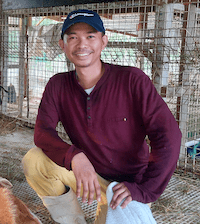
Mr. Jaycee de Guzman is a self-taught agriculturist and the founder of Alpha Agventure Farms, recognized as the leading backyard farm in the Philippines. With a rich background in livestock farming dating back to the early 1990s, Mr. de Guzman combines his expertise in agriculture with over 20 years of experience in computer science, digital marketing, and finance. His diverse skill set and leadership have been instrumental in the success of Alpha Agventure Farms.


